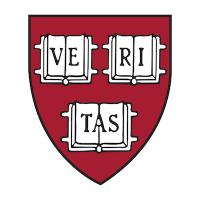What do they do?
Teach courses in philosophy, religion, and theology. Includes both teachers primarily engaged in teaching and those who do a combination of teaching and research.
Also known as:
Adjunct Instructor, Adjunct Professor, Assistant Professor, Associate Professor, Biblical Studies Professor, Church Music Professor, Divinity Professor, Ethics Professor, Humanities Professor, Instructor, Old Testament Professor, Pastoral Ministries Professor, Philosophy Instructor, Philosophy Professor, Professor, Religion Instructor, Religion Professor, Religious Studies Professor, Systematic Theology Professor, Theology Professor
-
0%
Change
Ranks #42 in job growth rate50Job Openings
Ranks #18 in net job growth
Looking for colleges that offer a specific major? Use the College Match Tool to find your best-matched schools and discover your estimated Net Price!
- Doctorate or Professional Degree (47%)
- Master's degree (31%)
- Bachelor's degree (15%)
- Associate's degree (2%)
- Some college, no degree (2%)
- High school diploma equivalent (2%)
- Less than high school diploma (1%)
Most Popular Majors that prepare Philosophy and Religion Teachers, Postsecondary
-
#1
-
Degrees Granted
5,756
-
Female Students
2,287
-
Male Students
3,469
-
Median Starting Salary
$44,700
-
-
#2
-
Degrees Granted
1,660
-
Female Students
548
-
Male Students
1,112
-
Median Starting Salary
$36,200
-
-
#3
-
Degrees Granted
1,196
-
Female Students
401
-
Male Students
795
-
Median Starting Salary
$34,900
-
-
#4
-
Degrees Granted
2,002
-
Female Students
971
-
Male Students
1,031
-
Median Starting Salary
$37,800
-
-
#5
-
Degrees Granted
582
-
Female Students
219
-
Male Students
363
-
Median Starting Salary
$34,900
-
People in this career often have these skills:
- Reading Comprehension - Understanding written sentences and paragraphs in work-related documents.
- Active Listening - Giving full attention to what other people are saying, taking time to understand the points being made, asking questions as appropriate, and not interrupting at inappropriate times.
- Speaking - Talking to others to convey information effectively.
- Instructing - Teaching others how to do something.
- Writing - Communicating effectively in writing as appropriate for the needs of the audience.
- Critical Thinking - Using logic and reasoning to identify the strengths and weaknesses of alternative solutions, conclusions, or approaches to problems.
- Learning Strategies - Selecting and using training/instructional methods and procedures appropriate for the situation when learning or teaching new things.
- Active Learning - Understanding the implications of new information for both current and future problem-solving and decision-making.
- Complex Problem Solving - Identifying complex problems and reviewing related information to develop and evaluate options and implement solutions.
- Social Perceptiveness - Being aware of others' reactions and understanding why they react as they do.
- Judgment and Decision Making - Considering the relative costs and benefits of potential actions to choose the most appropriate one.
People in this career often know a lot about:
- Philosophy and Theology - Knowledge of different philosophical systems and religions. This includes their basic principles, values, ethics, ways of thinking, customs, practices, and their impact on human culture.
- English Language - Knowledge of the structure and content of the English language including the meaning and spelling of words, rules of composition, and grammar.
- Education and Training - Knowledge of principles and methods for curriculum and training design, teaching and instruction for individuals and groups, and the measurement of training effects.
- History and Archeology - Knowledge of historical events and their causes, indicators, and effects on civilizations and cultures.
People in this career often have talent in:
- Written Comprehension - The ability to read and understand information and ideas presented in writing.
- Oral Expression - The ability to communicate information and ideas in speaking so others will understand.
- Speech Clarity - The ability to speak clearly so others can understand you.
- Oral Comprehension - The ability to listen to and understand information and ideas presented through spoken words and sentences.
- Written Expression - The ability to communicate information and ideas in writing so others will understand.
- Inductive Reasoning - The ability to combine pieces of information to form general rules or conclusions (includes finding a relationship among seemingly unrelated events).
- Deductive Reasoning - The ability to apply general rules to specific problems to produce answers that make sense.
- Near Vision - The ability to see details at close range (within a few feet of the observer).
People in this career often do these activities:
- Evaluate student work.
- Guide class discussions.
- Teach humanities courses at the college level.
- Administer tests to assess educational needs or progress.
- Prepare tests.
- Develop instructional materials.
- Stay informed about current developments in field of specialization.
- Attend training sessions or professional meetings to develop or maintain professional knowledge.
- Maintain student records.
- Write articles, books or other original materials in area of expertise.
- Direct department activities.
- Research topics in area of expertise.
- Evaluate effectiveness of educational programs.
- Develop instructional objectives.
- Advise students on academic or career matters.
- Supervise student research or internship work.
- Select educational materials or equipment.
- Order instructional or library materials or equipment.
- Serve on institutional or departmental committees.
- Promote educational institutions or programs.
- Perform student enrollment or registration activities.
- Compile specialized bibliographies or lists of materials.
- Plan community programs or activities for the general public.
- Write grant proposals.
- Advise educators on curricula, instructional methods, or policies.
This page includes data from:

 Occupation statistics: USDOL U.S. Bureau of Labor Statistics Occupational Employment Statistics
Occupation statistics: USDOL U.S. Bureau of Labor Statistics Occupational Employment Statistics












